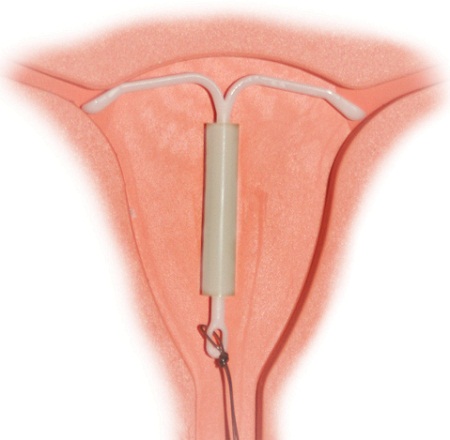Pregnancy associated with Mirena, Mirena is a hormonal intrauterine device (IUD) classified as a long-acting reversible contraceptive method available in the US and UK. MZFBFV4PGYDE It’s a T-shaped piece of soft, flexible plastic less than 1.5 inches long that emits a small amount of progestin directly into your uterus (it’s estrogen-free). There are two threads attached to the end that hang down out the opening of your cervix to help you check whether it’s in the correct place.
It can be a great choice for a lot of women, since it provides a relatively low maintenance form of birth control that you don’t really have to worry about. It is a great choice for women who don’t want to have to worry about birth control every day and it is good for up to five years. But, the question is, what happens if you want to get pregnant after Mirena?
How it Works

Mirena : image, wikipedia
The small amounts of levonorgestrel (a type of progestin) released by Mirena thicken your cervical mucus to prevent sperm from entering your uterus so they can’t reach your egg, and thus can’t fertilize it. It also thins the lining of your uterus, and may stop the release of your egg from your ovaries. In the unlikely event that a sperm does fertilize your egg and it survives, an IUD causes inflammation of the uterus making it harder for the fertilized egg to implant. To ensure the Mirena remains in place, insert a finger into your vagina, feel for the cervix, and check for the threads once a month.
Mirena Pros
• Is one of the most effective forms of reversible birth control
• It can be used while breastfeeding
• No preparations needed before sex to ensure it works
• Ability to become pregnant returns quickly when removed
• Fewer menstrual cramps
• Lighter periods and less blood (some women stop having periods completely)
• Effective for three-five years (depending on the IUD)
• Less likely to interact with other medications and safe for women with medical problems
Mirena Cons
• Irregular periods and spotting between periods often occurs after insertion, but this usually improves after 3 to 6 months
• Cramping or backache can occur at insertion
• Mild to moderate discomfort during insertion procedure
Insertion can be very painful and can cause some women cramping, bleeding, and dizziness. Some women complain of irregular periods, spotting, and some have heavy bleeding for the first several months of use. IUDs also increase the risk of pelvic inflammatory disease (PID), although the percentage of women using the Mirena who develop PID is less than one percent.
A rare life-threatening infection called sepsis could also occur within the first few days after Mirena is placed. The Mirena could also become embedded in the uterine wall, or even perforate it, and in either case, the user would no longer be protected from pregnancy, and the Mirena would need to be surgically removed. Another not-so-great thing about the Mirena is that since the threads hang down out the opening of your cervix, your partner may be able to feel them during intercourse.
Who Should Use Mirena
Since this is a long-term form of birth control, it’s recommended for women who aren’t planning on having children for several years, are done having children, or don’t want to have children. Since it doesn’t offer protection against STDs, it’s recommended for women who are in long-term relationships with someone they know is STD-free.
Effectiveness
It’s 99-percent effective at preventing pregnancy, but like the pill, it won’t protect against STDs such as HIV. It is effective immediately if inserted within seven days after the start of your period, otherwise you’ll need a backup form of birth control for the first seven days after getting the Mirena.
Fertility After Removal
After removal, fertility will return to previous levels relatively quickly. The majority of women returned to fertility within three months.
Removal of the device should only be performed by a qualified medical practitioner. You should never attempt to remove the IUD you self.
More resources : www.mirena.com



 Saving...
Saving...